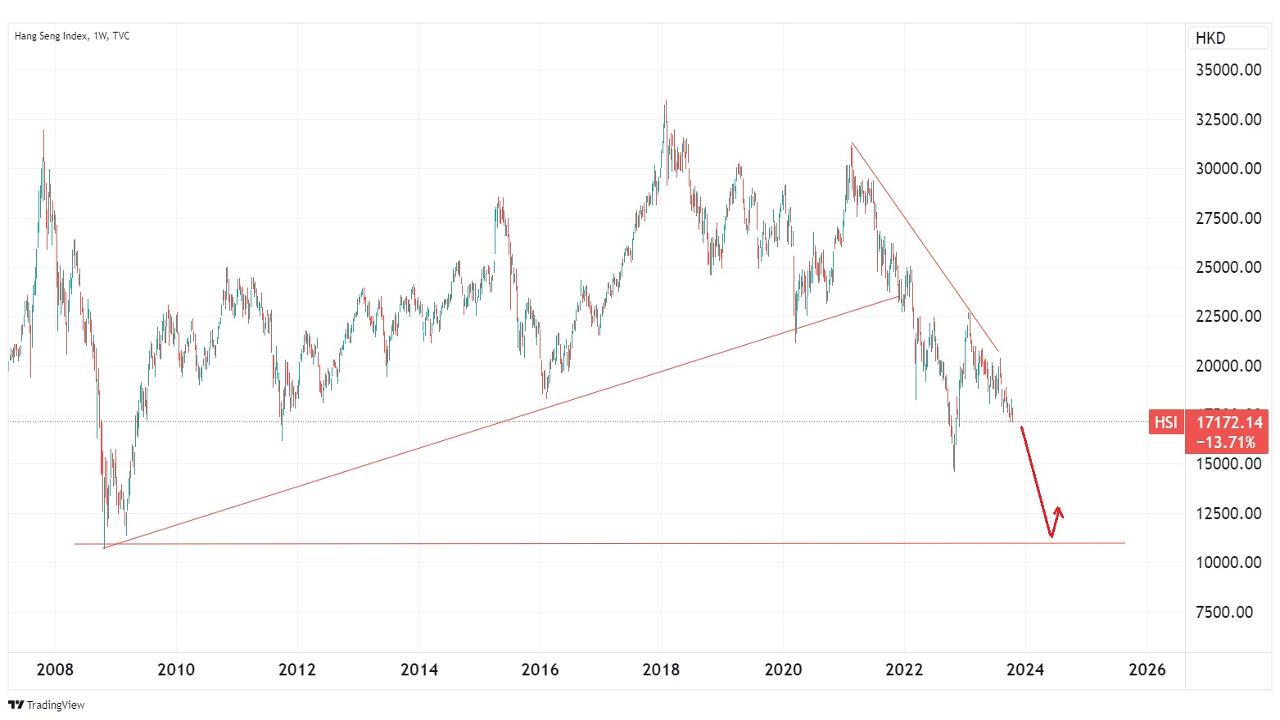Video:
Take our online poll:
AI Analysis:
Investing in the Chinese stock market can be an attractive opportunity due to China's significant economic growth and the diversification it can add to a global investment portfolio. However, it's essential to consider several factors before making investment decisions. Here are some key factors to keep in mind:
1) Economic and Political Stability: China's political and economic landscape can be complex, and government policies can have a significant impact on the stock market. Keep a close eye on political developments and regulatory changes that might affect your investments.
2) Market Knowledge: Understand the structure and workings of the Chinese stock market. China has two main stock exchanges, the Shanghai Stock Exchange (SSE) and the Shenzhen Stock Exchange (SZSE). Knowing how these exchanges operate is essential.
3) Currency Exchange Rates: Consider how fluctuations in the Chinese currency (the Renminbi or Yuan) can impact your investments, especially if you're investing as a foreigner. Exchange rates can affect both the value of your investments and your returns.
4) Industry and Sector Analysis: Like any other stock market, it's crucial to analyze various industries and sectors within China. Some sectors, like technology and e-commerce, have shown significant growth, while others may be more cyclical or risky.
5) Regulatory Environment: Chinese regulatory policies can change rapidly and significantly impact certain industries or companies. Keep abreast of these changes and how they might affect your investments.
6) Corporate Governance: Assess the corporate governance of Chinese companies. Some have faced governance issues and accounting scandals in the past. Research the companies you're interested in and their transparency and governance standards.
7) Economic Indicators: Monitor key economic indicators, such as GDP growth, inflation rates, and consumer sentiment. These can provide insights into the overall health of the Chinese economy and potentially influence your investment decisions.
8) Trade Relations: The relationship between China and other major economies, especially the United States, can impact trade, tariffs, and investments. Be aware of global geopolitical developments and how they may affect Chinese stocks.
9) Long-Term vs. Short-Term: Decide whether you're looking for short-term gains or long-term investments. Your investment strategy will influence the types of stocks you choose and how you manage your portfolio.
10) Risk Tolerance: As with any investment, consider your risk tolerance. Chinese stocks can be more volatile than established markets, and the regulatory environment adds an additional layer of risk.
11) Diversification: Diversify your portfolio across different sectors and industries to spread risk. Investing in a broad range of Chinese stocks can help mitigate potential losses in specific areas.
12) Access and Brokerage: Determine how you will invest in the Chinese stock market. Foreign investors can access Chinese stocks through various means, such as exchange-traded funds (ETFs), American Depositary Receipts (ADRs), or direct investments through international brokerages.
13) Due Diligence: Perform thorough due diligence on individual stocks or investment vehicles. This includes analyzing financial statements, management, competitive positioning, and growth prospects.
14) Tax Implications: Understand the tax implications of investing in the Chinese stock market, both in your home country and in China. Tax laws can vary significantly.
15) Consultation: If you're unsure about investing in Chinese stocks, consider consulting with a financial advisor who specializes in international investments or a professional with expertise in the Chinese market.
Remember that investing in any stock market carries risks, and past performance is not necessarily indicative of future results. It's crucial to have a well-thought-out investment strategy, diversify your portfolio, and stay informed about market developments to make informed decisions when investing in the Chinese stock market.
Chart:

References:


Comments